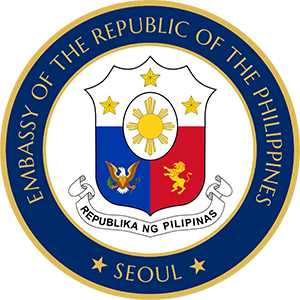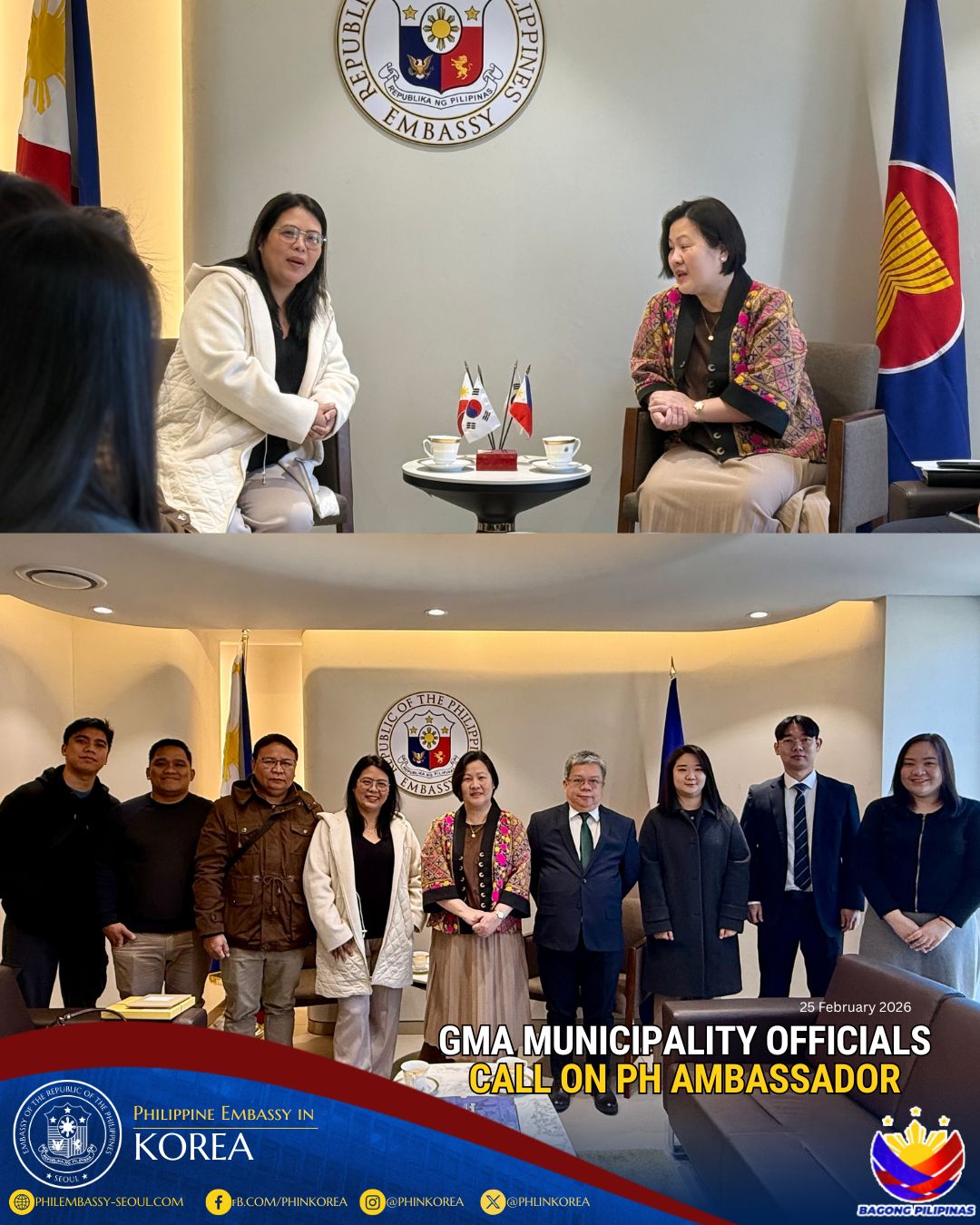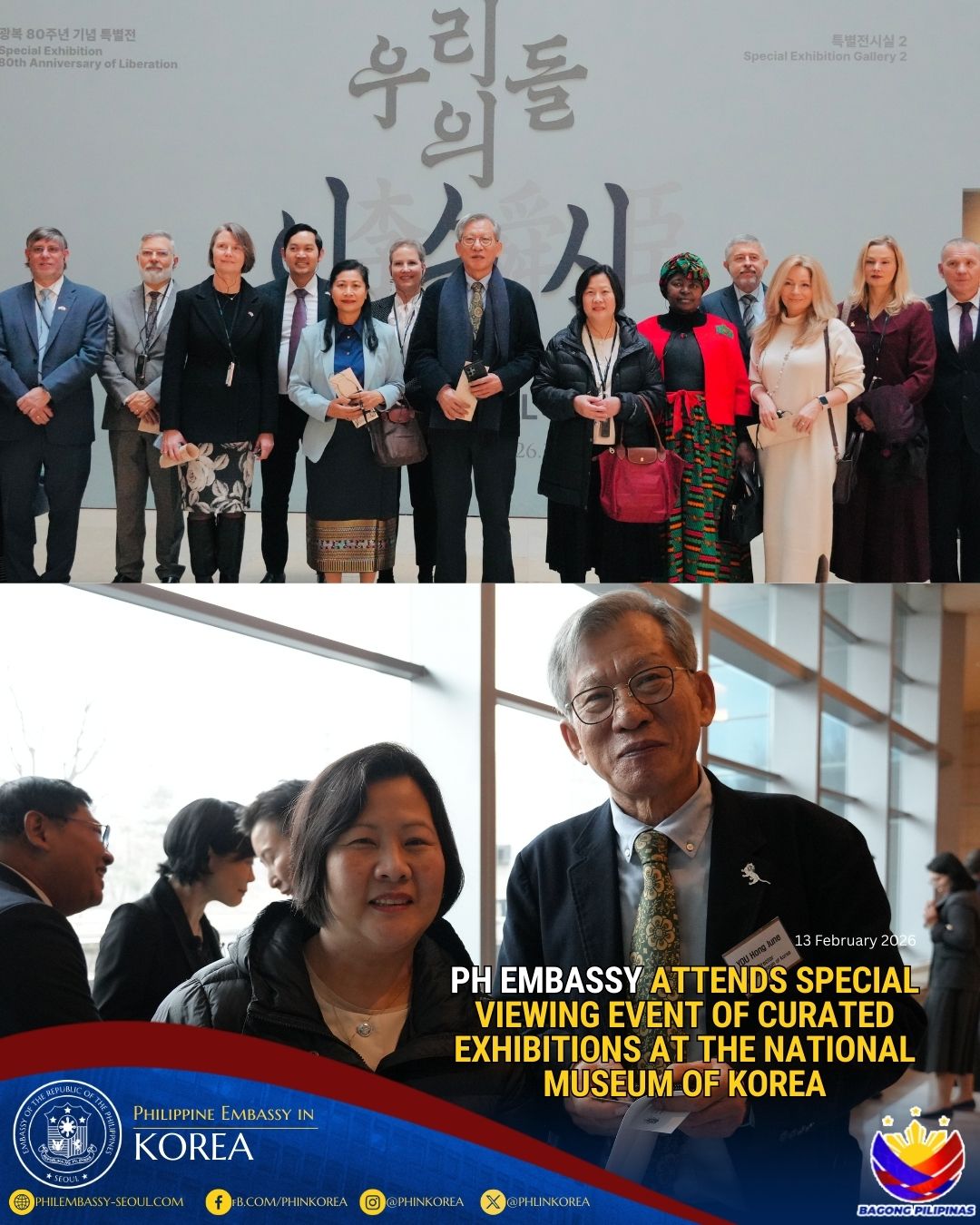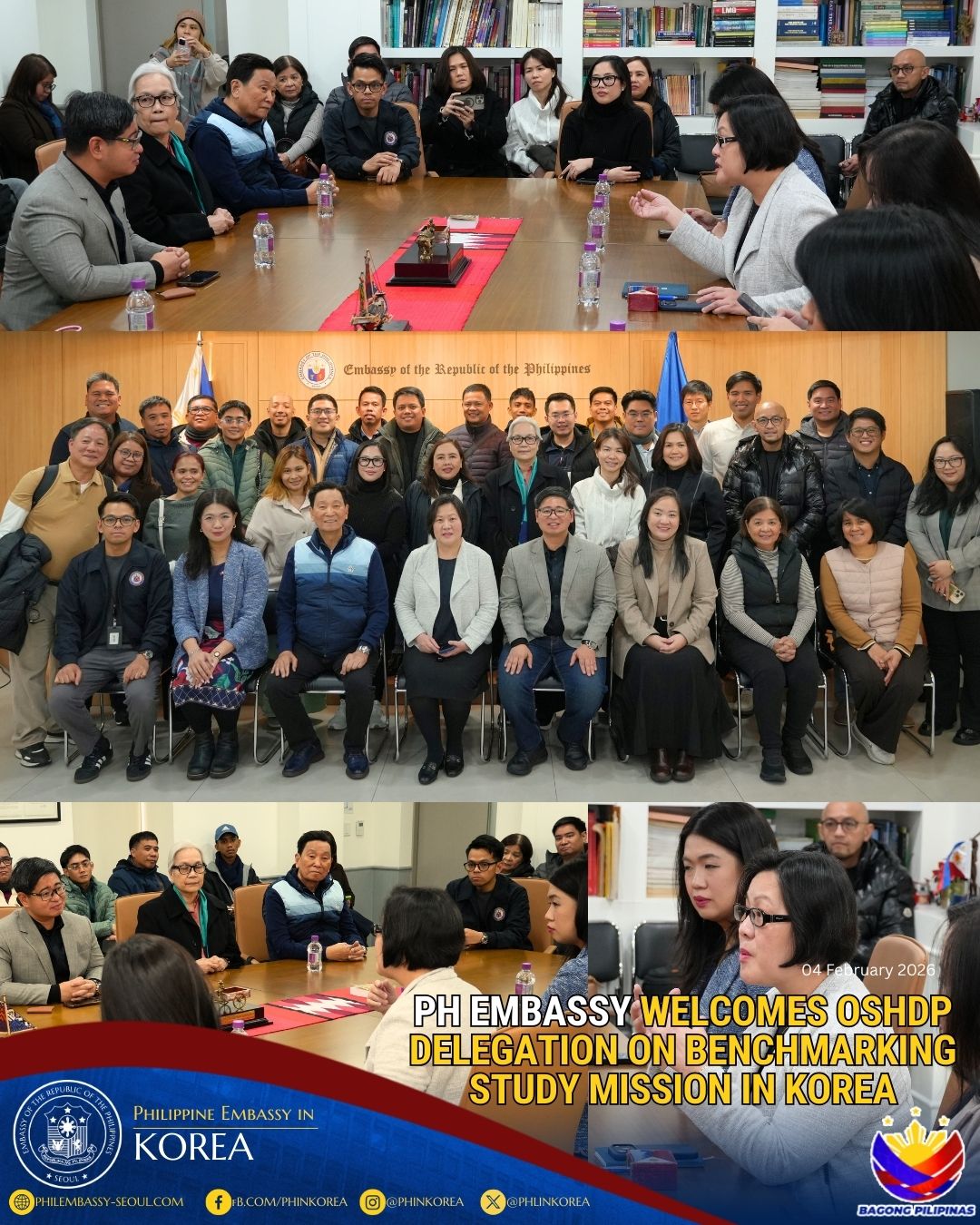RP envoy to South Korea underscores people-to-people relations, OFW protectionbioclavid wiki kapslerbruger.site bioclavid til hunde
AMBASSADOR Luis T. Cruz lauds the unique people-to-people relationship between South Korea and the Philippines as he underscored the need to preserve and strengthen the special ties between the two countries.
In an exclusive interview with The Seoul Times dated May 2 on the occasion of a 17-person business and trade mission from the Philippines, Cruz said that aside from business and trade, bilateral relations is also best expressed in the people to people exchange between the two countries.Around 50,000 Filipinos currently live in South Korea as students, professionals, spouses or workers.
Just the same, there are more Koreans in the Philippines than there are Filipinos in Korea. Recent estimates show that approximately 100,000 Koreans reside in the Philippines, either as students, retirees, entrepreneurs, and diplomats, among others.
In 2007, approximately 100,000 Korean students went to the Philippines, comprising almost 17 percent of total arrivals, making South Korea the biggest sender of students to the Philippines.
South Koreans also topped tourist arrivals in the Philippines last year, with 654,000 visitors. Based on the records of the Philippine Retirement Authority, some 47 percent of foreign retirees who chose to stay in the Philippines, or around 2,620 program enrollees, were South Koreans.
Cruz underscored that overseas Filipino workers in South Korea are among the best exports of the country.
“The Philippines is proud of its highly educated and globalized workÂforce. Our overseas workers not only help the economy of the Philippines through their remittances, but also directly contribute to the development of the economies of their respective host countries,†Cruz told the paper.
Around eight million Filipinos actually fuel the economies of practically all nations by providing services as teachers, engineers, computer programmers, nurses, caregivers, factory workers, architects, household help, financial analysts and corporate decision makers.
“The subject of exporting labor is definitely multi-dimensional, but one thing I wish to bring up is the amazing ability of Filipinos to adapt to local customs and quickly acquire necessary skills. Filipinos are known for their wit, reliability and ingenuity,†he said.
South Korea is unique to the PhilipÂpines since it is the only country where the country has a government-to-goÂvernÂment labor-sending arrangement. Under the Employment Permit SysÂtem, Filipinos who wish to work in South Korea apply through the PhilipÂpine government. South Korean emÂployers also go through a similar proÂcess with the Ministry of Labor, he said
“Both countries will re-negotiate the agreement later this year once the current contract expires. We will be making appropriate recommendations regarding ways to further enhance this mutually beneficial arrangement at an appropriate time, continuously bearing in mind the welfare of our workers,†Cruz added.
In the Philippines, Korean companies are very active in shipbuilding, energy, manufacturing and infrastructure-building. Korean companies abound in investment zones and are generally well accepted.
Koreans are known for their hard work, a trait which is undoubtedly one of its keys towards rapid industrialiÂzation. Companies like Samsung, KEPCO, Hanjin and POSCO are brand names that reflect the strength of Korean industry.
“With the continued influx of Korean investments to the PhilipÂpines, I will not be surprised if Korea gains another “Number One†in the Philippines this year, number one in terms of foreign direct investment flow,†he said.
In 2006, South Korea became the top investor in the Philippines owing to investments by Hanjin. It is consistently in the list of top 10 investors, a trend expected to continue with Hanjin’s decision to construct another facility in Mindanao this year, Cruz explained.
Apart from investments in shipÂbuilding, energy and manuÂfacturing, South Korea may consider expanding to sectors such as electronics and industrial estate development; infrastructure-building for tourism, medical tourism and retirement; automotive parts and compoÂnents-areas where the Philippines can be a production hub; eduÂcation; mining and metal; film and creative arts; and pharÂmaceutical and biosciences.
Cruz believed, however, that “There is plenty of space for [the Philippines] to explore and take advantage of our competencies. One particular area that we promote is the entry of Filipino English teachers to the Korean market. Korean law right now allows only speakers from native English-speaking countries as teachers of English.â€
He pointed out that this thinking needs to change and the qualifications of the potential English teacher should be the foremost consideration, not his or her nationality.
“There are plenty of excellent English teachers in the Philippines who can help South Korea educate its people and instill a more global outlook. Filipinos have been hired as English teachers in countries like the US and Canada. Why can’t South Korea?,†he told The Seoul Times.
He then suggested that Korean students to go out of their shell. While they can enroll in exclusive schools, many opportunities for learning may be lost if the invaluable space for interaction readily offered by studying abroad like in schools in the Philippines becomes restricted.
“I would encourage students, whether they study in exclusive schools or not, to explore the world outside the confines of their classrooms. The enriching experience of knowing other customs and mindsets, of expanding one’s horizons and discarding biases, is already laid out for foreign students [and] they only need to grab the opportunity,†he stressed.
“When picking a school, I would recommend that students go through appropriate channels and select accredited institutes to ensure the quality of their stay and eduÂcation,†he concluded.
The 17-person mission arrived in South Korea on April 18 and visited the Korea IT International CoopeÂration Agency and Korea AssoÂciation of Information and TeleÂcommuÂnication to get the first hand inforÂmation about Korean IT industries. It also observed the facilities of Seoul Data Center of Seoul Metropolitan Government and Korea Advanced Institute of Science and Technology in Taejon, some 130 km south of Seoul.
The Philippines was a staunch supporter of the United States during the Cold War era, and was among the first to send troops to the Korean peninsula to check the advance of the communists from the northern part of the 17th Parallel.
The Philippines became the fifth country to recognize South Korea when diplomatic ties were established on March 3, 1949. Cruz added that upon landing in Busan on September 19, 1950, the Philippine Expeditionary Force to Korea became the 10th BattaÂlion Combat Team and the third United Nations Command ground combat unit to enter the Korean War after the United States and the United Kingdom.
This bilateral relationship has since grown from a purely military collaboration to a wide-ranging partnership that covers political-security, development cooperation, economic and socio-cultural matters.
From Manila Times, 05 May 2008



 February 27, 2026
February 27, 2026
 February 27, 2026
February 27, 2026
 February 15, 2026
February 15, 2026
